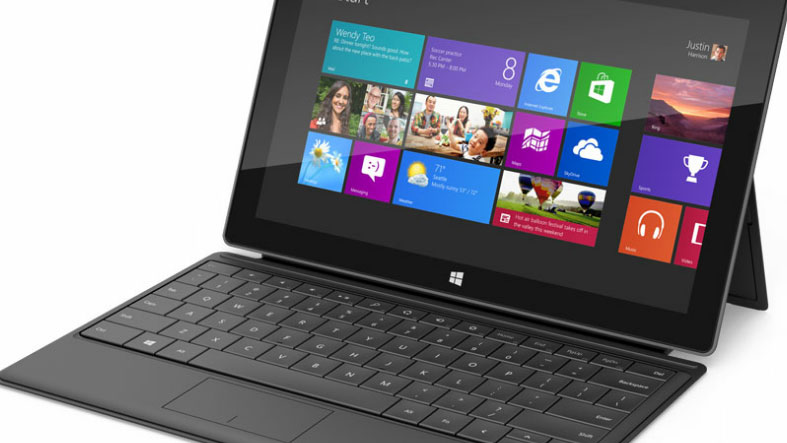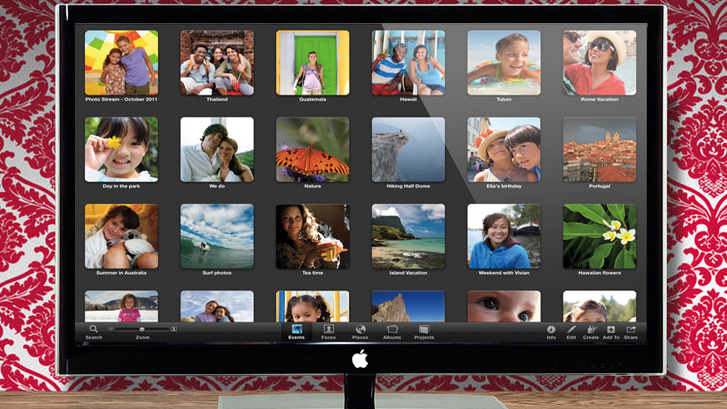Why the Surface tablet launch signals a bold new direction for Microsoft
Redmond hopes hardware innovation will drive software success
The implications of this are clear: Microsoft now believes it can be both hardware agnostic and hardware religious at the same time.

Steve Ballmer may have Apple in his sights with this new philosophy, but that doesn't mean Microsoft is simply going to follow where Apple leads. Microsoft, like Apple, wants to skate to where the puck is going to be, not where it has been.
Microsoft was actually the first to pioneer the tablet form over a decade ago, but its hardware design was clunky and inelegant, like much of the physical output from the old, software-first Microsoft. So it was Apple who finally captured the potential of the tablet with the iPad. Steve Ballmer doesn't want to let this happen again.
Getting smarter
So Microsoft will take the fight to iPad with Surface, and possibly to the iPhone with an all new Microsoft smart phone if you believe the rumours. However, in order to get ahead it knows it must also lead the charge into new markets like smart TV and ensure that this time around its hardware innovation and design quality holds up against the arrival of Apple and others into those markets.
Thanks to the remarkable leak of a 2010 Microsoft roadmap document, we can now say with reasonable certainty that Microsoft will launch a smart TV box in 2013 under its Xbox gaming brand. It is reported to feature an always-on power state and dedicated TVR chipset so you can record TV while gaming or when you leave the house, gesture and voice control via an updated version of Microsoft's Kinect sensor, the ability to run apps concurrently with games and TV, and advanced streaming technology so you can serve all that entertainment out to your smart phone or tablet seamlessly.
The existing Xbox 360 already offers movie, TV and music services along with social apps like Facebook and Twitter, and Microsoft has been hiring talent from big broadcasters for some time. It's clear that the company views smart TV as a key battleground moving forward, and it's a battle Microsoft believes it's in a good position to win.
Sitting alongside Xbox president Don Mattrick at Mobilebeat 2012 in July, Kleiner Perkins partner Bing Gordon expressed his own confidence in Microsoft's smart TV strategy: "Google owns eyeballs. Apple owns ears and fingertips. With Xbox, Microsoft has a shot at owning the living room".
Get daily insight, inspiration and deals in your inbox
Sign up for breaking news, reviews, opinion, top tech deals, and more.
Of course Microsoft won't be alone in contesting this market. TV manufacturers are already offering smart sets and rival videogame firms like Sony and Nintendo are preparing to launch their own next generation systems which will include smart content and apps. And yes, Apple itself has long been rumoured to be lining up a smart TV product to replace Apple TV.

History has a way of repeating itself. Just as a new direction allowed Apple to come back at Microsoft with iBook and iMac, so too a new, more hardware-centric Microsoft is hoping to come back at Apple starting with Surface.
And just as Apple's strategy led it to crack open new markets with iPod, iPhone and iPad, so too Microsoft is hoping it can finally open up the smart TV market.
But can the house that built Bill Gates built have its cake and eat it, too? Can Microsoft become hardware religious while still making Windows 8 hardware agnostic? When Surface launches, we'll begin to find out.